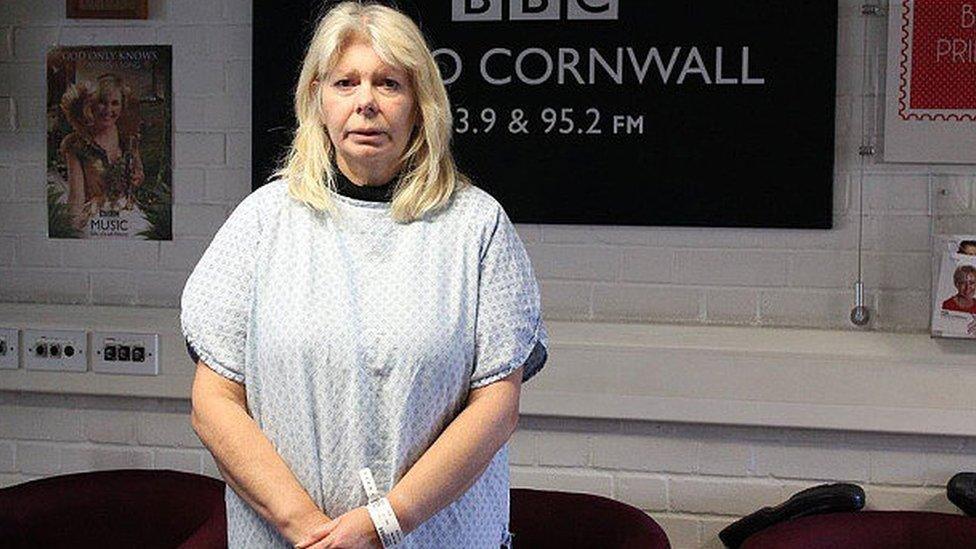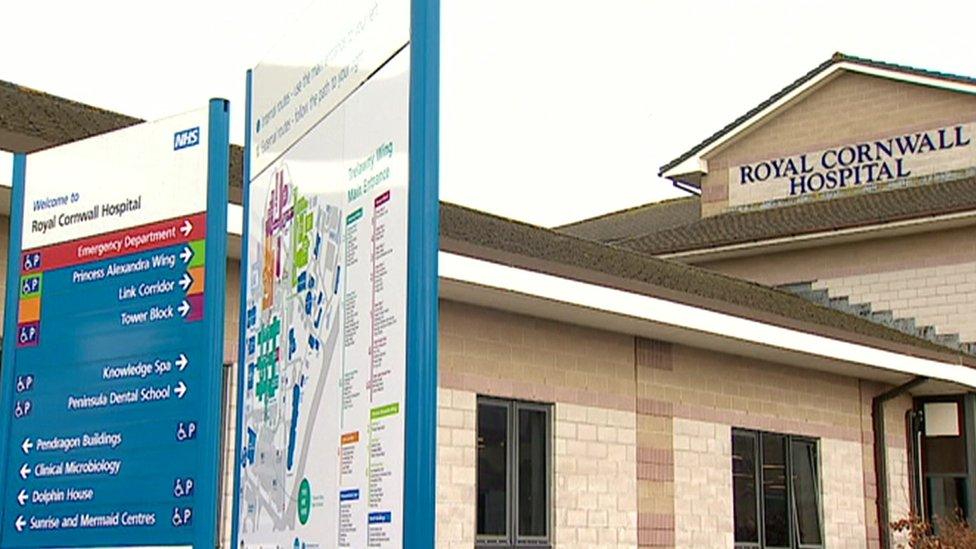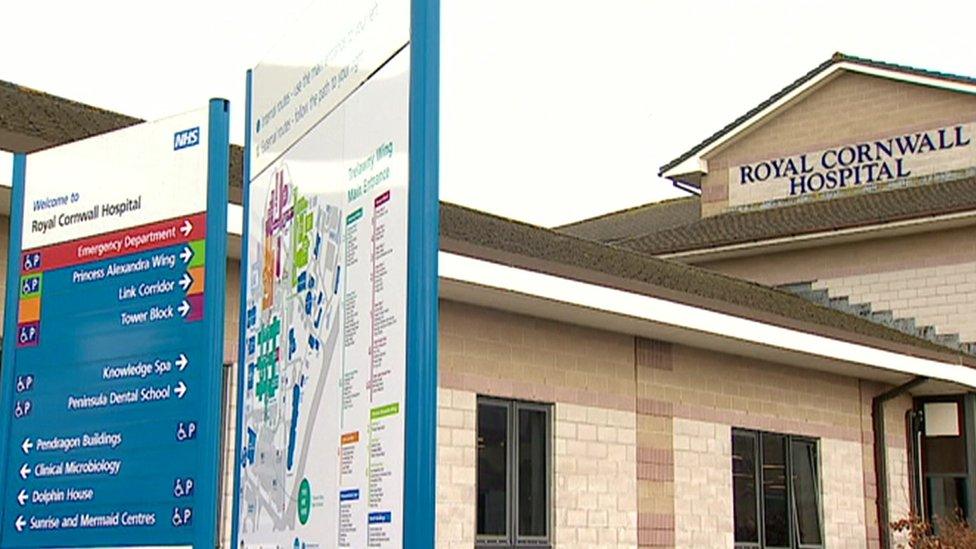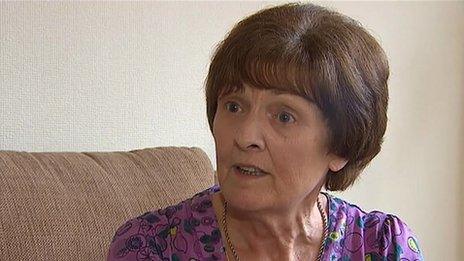Bed blocking in Cornwall increases by 69% as new scheme fails
- Published

Iona Hevican had an operation cancelled at the last minute because of bed shortages
A scheme that aimed to see hospital bed blocking fall by a quarter actually saw numbers shoot up by 69% in a year.
Health organisations in Cornwall shared resources in the hope of tackling the problem but instead were hit by the big increase.
A health campaigner said the new initiative - launched under the government's Better Care Fund - could turn out to be "useless".
Cornwall Council and NHS Kernow apologised to patients affected.
More on this story and other news from Devon and Cornwall
Bed blocking is a shortage of hospital beds caused by patients who are ready to be discharged to a care home, for example, not being able to leave hospital because there is no care home bed available.
Under the Better Care Fund the local council and the health authority were encouraged to pool resources to ensure care packages were available for patients leaving hospitals in Cornwall.
A report prepared for Cornwall Council, external revealed that from July to September a total of 3,815 days were lost because of problems with social care packages, compared with 2,255 days for the same period in 2014.
'Bull by the horns'
Graham Webster, vice-chairman of campaign group, Health Initiative Cornwall, said the situation "has only got worse".
He said: "The Better Care Fund was meant to take the bull by the horns and resolve this situation.
"We are blocking numerous beds with patients that don't need to be there."

The Royal Cornwall Hospital is suffering from bed-blocking
Iona Hevican from Newquay had her hysterectomy operation cancelled at the last minute last January because of bed shortages at the Royal Cornwall Hospital in Truro.
She said: "Ordinary people are being pushed away. It was awful to have to fight to get into your own hospital."
Cornwall received £44.5m from the Better Care Fund scheme, which was launched nationally in April 2015.
A joint statement from Cornwall Council, NHS Kernow and health providers said patients were discharged "as soon as clinically appropriate".
Dr Iain Chorlton, Chairman at NHS Kernow, said he was "confident that patient experience and outcomes will further improve".
The Department for Health said it was up to local organisations to spend money effectively.
- Published8 April 2015

- Published5 November 2015

- Published8 October 2013
